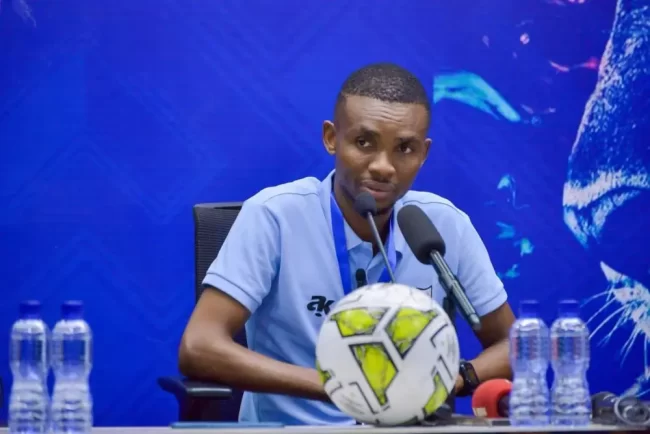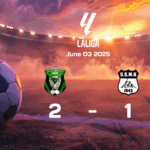Botswana head coach Alex Malete has made it clear that failing to advance beyond the group stage at the upcoming Women’s Africa Cup of Nations (AFCON) in Morocco would represent a significant disappointment for his side.
Drawn into a challenging group alongside Nigeria, Tunisia, and Algeria, Botswana face a demanding task. Yet, Malete remains firm in his ambition: the team must, at minimum, reach the quarter-finals.
“In all honesty, not getting out of the group stage would be a failure for us,” Malete stated confidently. “The objective is clear: to reach at least the quarter-finals. From there, we can start dreaming of the semi-finals.”
Botswana, making only their second appearance at the continental tournament, will need to overcome some of Africa’s most established teams in women’s football.
Nigeria, a powerhouse with multiple AFCON titles, presents a formidable challenge, while both Tunisia and Algeria boast technically disciplined squads with tournament experience.
Malete, however, is under no illusions about the task ahead. He acknowledges the contrasting playing styles of their group-stage rivals and the level of tactical preparedness required to succeed.
“Nigeria’s style of play is very different from that of Algeria or Tunisia,” he explained. “Algeria and Tunisia are very tactical in their approach, often structured and methodical.
Nigeria, on the other hand, blends physical strength with tactical discipline. We’ve taken time to prepare for these differing styles, and our job now is to find a way through this group.”
Malete’s analytical approach is shaped by a background that sets him apart from most coaches. Before stepping into the technical area, he worked extensively in the media as a radio analyst, print journalist, and television commentator. This unique path into coaching has given him what he describes as a “broader vision of football.”
“My media career was a foundation,” he said. “Working in radio and then moving into print and TV helped me observe the game from different angles. I learned to analyse matches, team structures, and tactical trends deeply.
As a journalist, you’re trained to ask the right questions, to dig deeper. That training developed my critical thinking and ability to assess performance objectively.”
He believes this unorthodox journey into coaching has equipped him with tools that are now central to his management style, from match preparation and tactical planning to player management.
As the tournament approaches, Botswana’s preparations are in full swing. Training sessions have been focused not only on fitness and technical sharpness but also on mental resilience, a quality Malete emphasises as essential in navigating a high-stakes group.
The squad, which blends experienced players with emerging talent, will rely on collective unity and strategic execution if they are to progress. With the head coach setting a clear benchmark of success, expectations are high within the camp.
Botswana’s journey begins with a sense of purpose and belief. For Malete and his players, the group stage is not a ceiling; it is the beginning of a campaign they hope will surpass expectations and elevate their standing in African women’s football.












